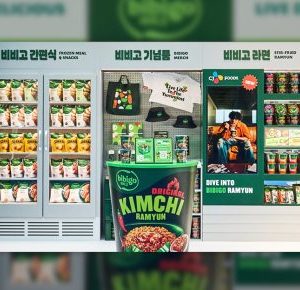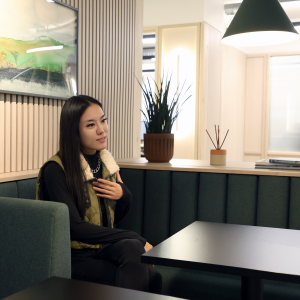CJ CheilJedang built a state-of-the-art food production base in Vietnam targeting the Asia Pacific and the European market to accelerate the expansion of the global Korean food market.

CJ CheilJedang began the full-scale production after holding a completion ceremony for the Kizuna factory in Long An province, Vietnam. The Kizuna factory consists of two buildings with four floors with a total area of 34,800m2 (15,500 pyeong). So far, 30 billion KRW has been invested in the construction and an additional 100 billion KRW will be invested in building more facilities until 2025.
The factory is the first production base overseas that applies the Global to Global model of CJ CheilJedang and will spearhead the company’s effort to enter the world market. Thus far, CJ CheilJedang has taken two approaches to enter the overseas market: Production in Korea and then export, and local production overseas and sales overseas. With the construction of the Kizuna factory, CJ CheilJedang can now produce flagship products in Vietnam and supply them directly to nearby countries. Taking advantage of the geographical location of the Kizuna factory, CJ CheilJedang will push ahead with exports to China, Japan, Southeast Asia, the EU, and Australia. CJ CheilJedang plans to triple the export volume of products made from Kizuna between this year and 2025.
Choi Eun-seok, CEO of CJ CheilJedang said in his congratulatory remarks that, “This year is a crucial year in expanding the food business in Vietnam, such as with the expansion of our strategy Global to Global and nurturing of new businesses. The Kizuna factory will become CJ CheilJedang’s important outpost in entering the global market based on international food safety certificates and halal certificates.”
Among the six global strategy products (GSPs), the Kizuna factory is an optimal location to act as an outpost for exports as it manufactures four major export items: mandu, processed rice, kimchi, and K-sauce. It also has easy access to raw materials with high price competitiveness from Southeast Asia, Australia, and the EU. It can also receive tax benefits from ASEAN and CPTPP, achieving further synergy with its exports. The factory has also acquired the global food safety system (FSSC22000) and Korea’s food safety certificate, HACCP, with which it can supply its products to mainstream distribution channels in the EU and Australia.
The factory has a production building dedicated to halal foods, which was first put into consideration right from the design stage. It also acquired the MUI certificate of Indonesia and JAKIM certificate of Malaysia and will play a central role in targeting the halal food market with products like processed rice, kimchi, and K-sauce.
The Kizuna factory is also equipped with cutting-edge technology. As the first production location to make use of a proprietary technology for an automated spring roll facility, CJ CheilJedang plans to continue the development of the machines to increase the automation ratio from 70% this year to 100% by 2024.
Moreover, CJ CheilJedang has an eco-hub system under which the company provides farming equipment and fertilizers to farmers in Da Lat, Vietnam, purchases local produce and contributes to the virtuous cycle for mutual development.
A CJ CheilJedang representative said, “The construction of the Kizuna factory represents how CJ CheilJedang has laid a solid foundation to target the Asia Pacific and EU markets. We will stay committed to increase momentum of introducing Korean food to overseas markets and achieve our goal of becoming a global, general food company.”











